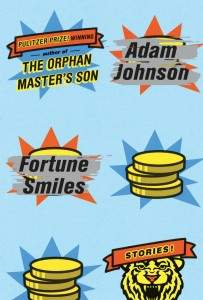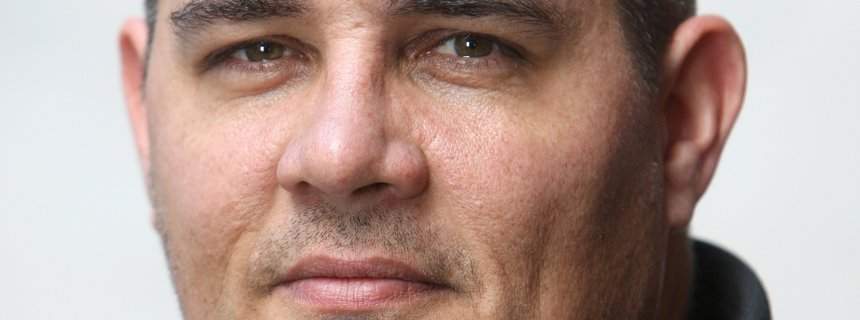Fortune Smiles
Adam Johnson
Random House
Release Date: August 18, 2015
ISBN 978-0-8129-9747-7
While this flash review was being written,
“Fortune Smiles” was awarded the
2015 National Book Award for Fiction.
In a 2010 interview for Electric Lit, author Adam Johnson was asked about the motivation behind his upcoming book, The Orphan Master’s Son (which later would be awarded the 2012 Pulitzer Prize for Fiction). The novel takes place in modern North Korea, a place he had studied after becoming interested in “propaganda and the voices of propaganda”, and where he eventually was allowed to visit. When asked by interviewer CJ Hauser if he felt that the North Koreans believe the propaganda that is a pervasive (and invasive) part of their everyday life, he responded, “My suspicion is that people in North Korea know that everything is a lie, but that they have no idea what the truth is.”
In Mr. Johnson’s newest book, a collection of short stories entitled Fortune Smiles, the notion of “what the truth is” continues to be elusive. This attempt to discover the truth is the basis of the central conflict in each of the six stories. However, what truly sets these stories apart is the unexpected and often dark circumstances in which they are placed.
For instance: an employed but homeless man searches for the mother of his baby in a New Orleans that is still reeling from both hurricane Katrina and hurricane Rita (“Hurricanes Anonymous”); the former warden of an East German Stasi prison – now a museum – has a far different explanation for what went on behind those walls than the tour guides (“George Orwell Was a Friend of Mine”); a haunted hacker/computer whiz who targets child pornographers (“Dark Meadow”); two defectors from North Korea struggle to find purchase in the South (“Fortune Smiles”).
These are (thankfully) outside the experience of most of us; we find them almost off-putting in their foreignness, in our inability to relate. And yet author Johnson has made each of the characters in his stories, while not familiar, extremely genuine. We may not recognize the setting or circumstances in the narration, but we are drawn to how real – and often uncomfortable – it all feels.
Prinz and I turn the corner onto Genslerstrasse and stroll along the prison’s outer wall. Above are barbed wire and the ceramic insulators where electric wires once hung. Neighbors used to throw books over the wall at night, perhaps hoping that inmates would find them. It shows you how little people around here understood the nature of the facility. These books, together with objects that were confiscated from incoming inmates, constituted our “lost and found” box, which I regularly brought home to Gitte. In this way, in even the most repressive days of the GDR, she read “1984” and listened to cassettes of the Rolling Stones.
Each story is composed of layers; for instance, in “George Orwell Was a Friend of Mine” (quoted above) not only is there a friction between the truth as “Herr Warden” (“I’m just Hans now.”) sees it, and as those who spent time imprisoned on the other side of the concrete doors see it, but also the elderly Hans seeks to find who is leaving long lost and very personal mementos of his prison administrator days on his front lawn in the middle of the night while he waits for news of his former wife, an alcoholic who still is the center of his world.
Yet even when the environment is the most uncomfortably intimate, the narrative is never forced; even at its most remote, we are drawn to it. This is why Adam Johnson is such a good writer; while we experience his stories from afar, they draw us in. Every single story is unsettling – and incredibly, compellingly readable.
~ Sharon Browning

